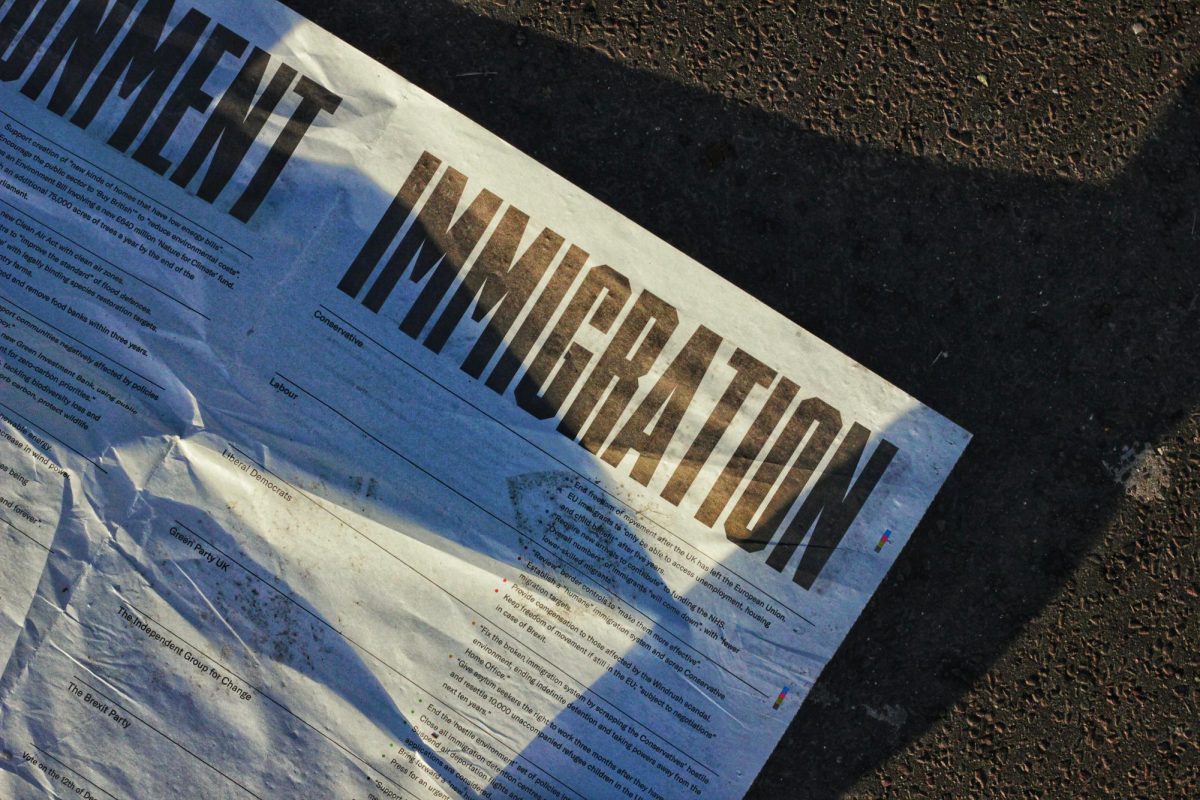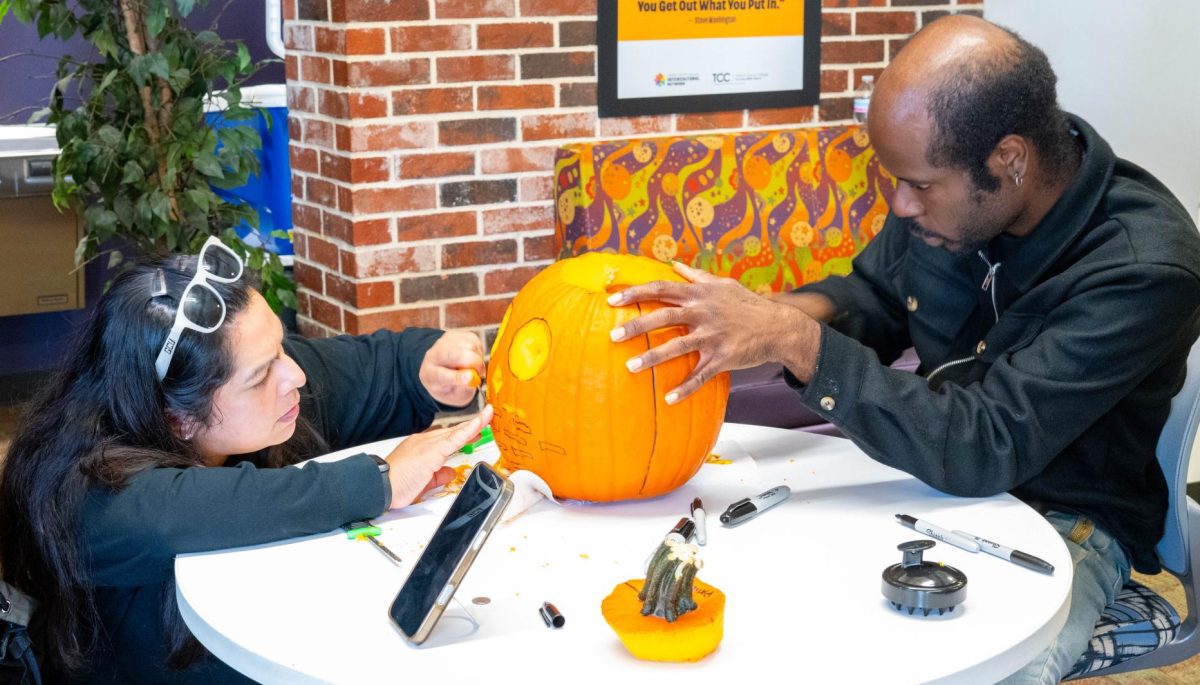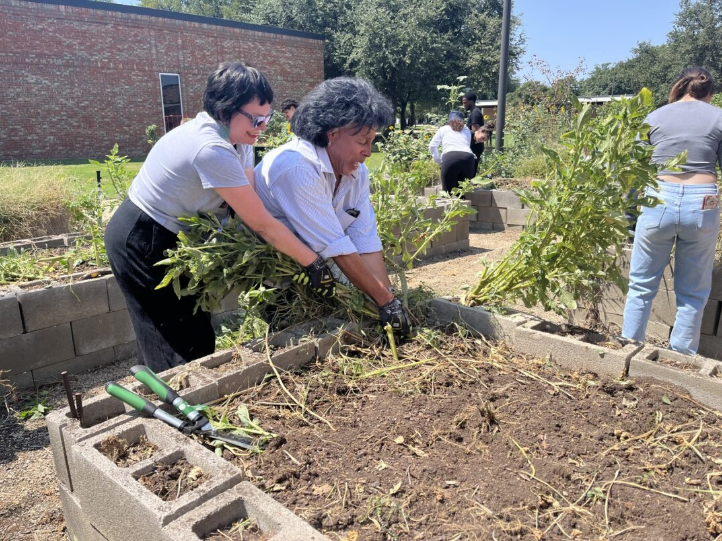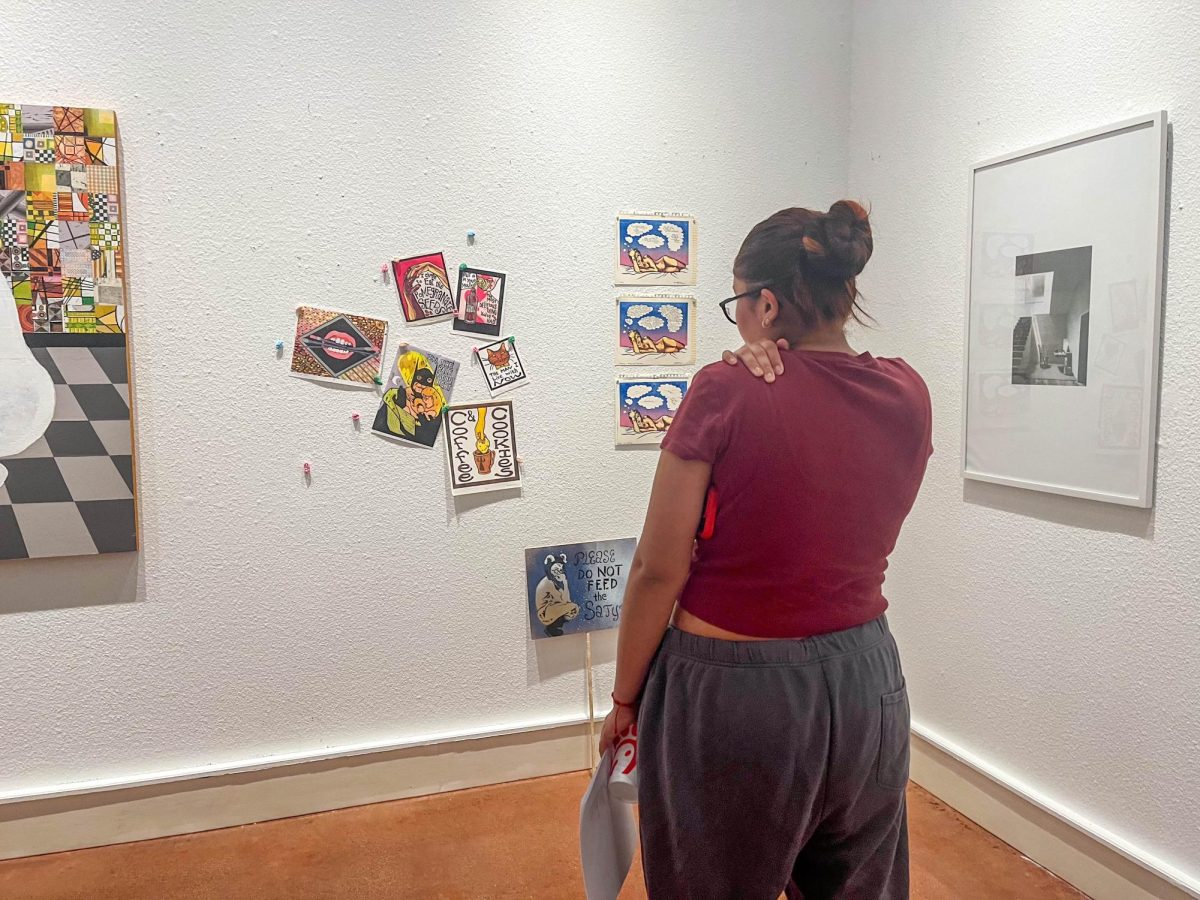Angel Valsin held a card against her head while shouting guesses as members of the Black Student Union on South Campus waved their hands around, calling out clues to the prompt.
The group had a game day to celebrate Black History Month in one of the few ways they could.
“I wish we were allowed to do more,” said Angel Valsin, BSU’s president.
BSU faced complications when attempting to schedule events for Black History Month, and while the student organization fought for their month-long celebration, the club’s future remains uncertain.
“We want people to know this is an organization that teaches Black culture, but we can’t even use words like Black,” Valsin said.
Senate Bill 17, signed by Gov. Greg Abbott and put into effect last year, prohibits state funding of diversity, equity and inclusion programs, inhibiting organizations like BSU to easily host events.
Sponsors of the student clubs, formally referred to as advisers, are the most restricted by the bill. When approached for questioning, BSU’s sponsor said she did not want to speak to The Collegian.
“She can’t say anything because it can jeopardize her job,” Valsin said. “They’re not able to talk and be active, and it kind of makes it harder.”
Club Vice President Jahson Anderson said it requires cultural events to be controlled and led by students without much guidance.
“We have to take it as a governmental process, like you have to provide proposals and logistics to everything we want, even if it’s just a regular meeting,” Anderson said.
TCC hasn’t listed any of BSU’s events for Black History Month on the website’s calendar, and the organization had issues when sending Student Activities their designs for flyers to be printed.
“We can send what we want, but they might not [print] it,” Anderson said. “They have new rules they have to follow too.”
The governor has argued that DEI programs violate both the federal and state constitutions.
“Most DEI programs say we’re going to have a special program for students of or people of this particular race or that particular race. That’s totally unconstitutional,” Abbott said when asked by CBS News Texas what he would say to those who may feel targeted by his policy.
Since the bill was signed into law in 2023, some BSU members have seen a decrease in the presence of cultural activities across TCC campuses, which concerns them.
Valsin said she believes students can understand other people’s behavior by learning about different cultures and not viewing what may be foreign to them as taboo.
For example, BSU has run into problems marketing any of its events during Black History Month. BSU member Lauryn Sample said it was from having the word “Black” in its event titles. Anderson said it was because of the design on their flyers, which included the word “Black.” Valsin said it was because the organization’s name contained the word “Black.”
“Culture is a big part of people. The fact that we can’t express ours the way we want makes it like, that’s not freedom,” Valsin said. “Black is a word. It’s a race. It’s what we are.”
Sample said they’re told it is because their events discriminate against other students, but she has never had anyone on South Campus approach her or other BSU members stating they felt left out.
“Yes, it’s focused on us because we don’t have any other space that’s focused on us,” Sample said. “[But] all people come, and we bond, and we get together, and it’s great.”
Executive board leader Sha’Tanae Lang said BSU strives to have everyone feel welcomed and comfortable when attending their events.
“We want everyone to learn about our history and just spread the love,” Lang said. “Not everybody’s the same, and we want to understand each other’s cultures. Even though we’re Black, there’s different nationalities and intersections that come with that.”
However, due to SB17 restrictions, BSU’s ability to educate others about their vast culture has been confined to a poster board and Instagram posts with information about important Black figures.
“There’s been a lot of censorship,” said Lang. “We have to work around what we can and can’t do and it’s kind of difficult, but we try to find a way.”
Anti-DEI laws state the removal of DEI’s presence will create fairness and make everyone equal, but Sample said that’s hypocritical.
“Is it fair that when we’re independent and being ourselves, it’s too much?,” Sample said. “We’re not going to change ourselves just because others don’t want Black focused on.”

While these laws try to suppress cultural clubs’ resources and abilities, BSU worked hard to put together multiple events for Black History Month, and student Kaleah Shabazz said she appreciated their efforts. She moved to Texas in 2020 from a predominantly Black area in North Carolina and said it was difficult trying to find her community here.
“It was a cultural shock moving here from North Carolina,” Shabazz said. “So, this makes me feel a little bit like I’m back at home.”
When enrolling to TCC, she said she was empowered by BSU.
“This gives me courage,” Shabazz said. “I want to do more here and be more involved, because change doesn’t start with one person.”
As BSU members played a game of charades, one could hear their cheering from below SSTU’s staircase.
Michael Fisher said he was drawn to the event because everyone was enjoying themselves.
He’d only attended one BSU meeting before their game day but said from here forward, he will be a part of the organization.
“I’m here for fellowship with people that look like me and don’t look like me,” Fisher said. “[We] come and talk about certain topics and learn more about society and get different views.”
When asked if there was anything he’d like to say to lawmakers aiming to ban DEI, Fisher just requested one simple favor.
“Let us live,” he said.








































